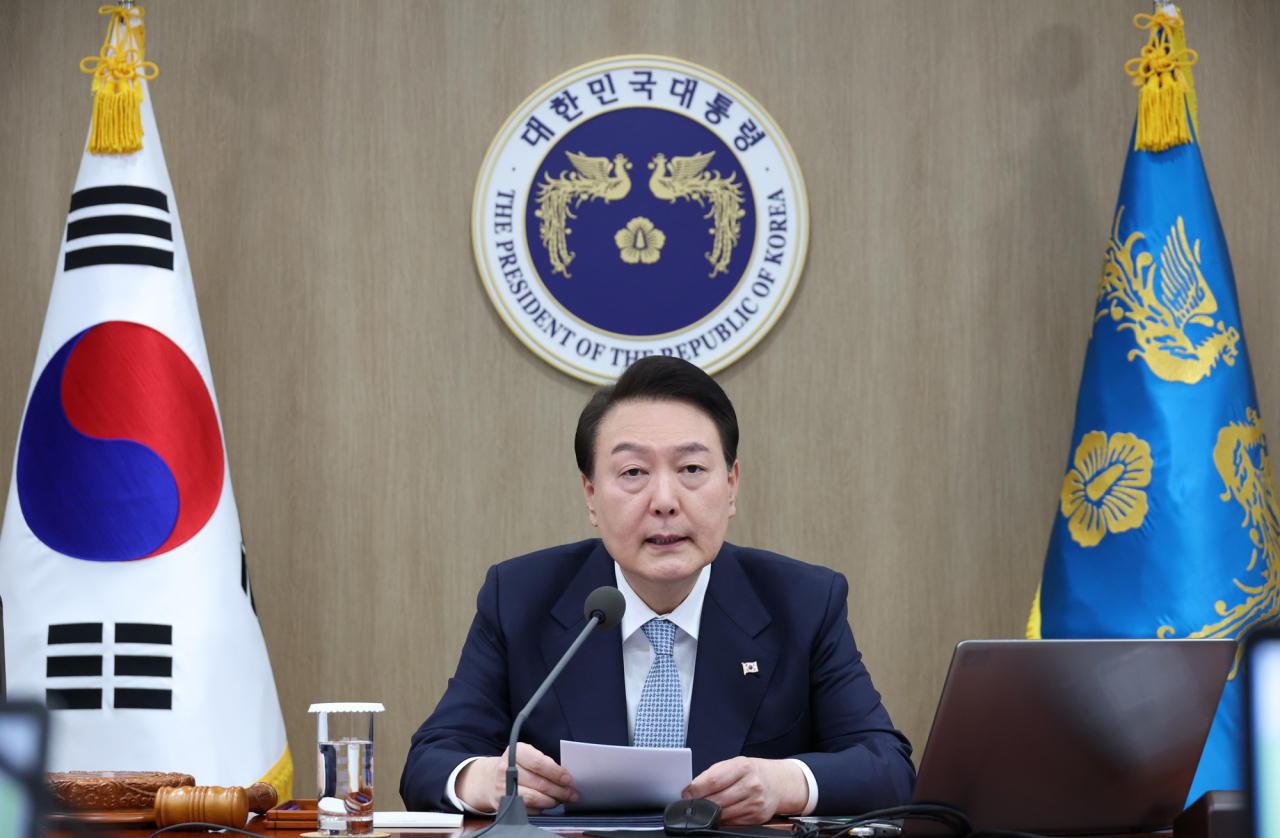Calls for nuclear buildup a chance to widen debate, experts say
By Choi Si-youngPublished : Jan. 31, 2023 - 18:21

Growing calls for South Korea’s independent nuclear buildup, a discussion that had left the country more divided than united, now offer policymakers latitude to widen the nuclear debate, experts said Tuesday as South Korea steps up efforts for a more powerful military to contain North Korea.
President Yoon Suk Yeol and Defense Minister Lee Jong-sup met with US Defense Secretary Lloyd Austin in Seoul on Tuesday while Foreign Minister Park Jin and his US counterpart, Antony Blinken, will meet in the US this week. The gatherings are meant to bolster the allies’ superior firepower against Pyongyang, Seoul’s imminent threat. Such military strength heavily hinges on extended deterrence, Washington’s support involving its nuclear weapons.
The latest Gallup Korea poll showed this week that 7 in 10 South Koreans back the country’s independent nuclear buildup, a jump from the 60 percent support six years ago by the same survey. This presents a chance to not only bring the conversation on nuclear arms to the mainstream, but leverage it to earn concessions from the US, South Korea’s biggest ally, according to experts.
That is more doable now than ever before, they say, because the growing calls for nuclear arms also concern the US. The US remains terse over what exactly nuclear deterrence entails, or when and how such forces will be deployed to protect South Korea.
“Being left in the dark with those questions unanswered is making more South Koreans convinced that an independent buildup is the surest way,” said Shin Jong-woo, a senior analyst at the Korea Defense and Security Forum. The US does not give details on its defense strategy as per its policy.
The ambiguity will not be resolved anytime soon, so in the meantime South Korea should take advantage of a shifting political landscape by widening the nuclear debate -- a course of action that could pressure Washington to either clarify its deterrence plan or reverse its position of not deploying nuclear weapons in Seoul. The US withdrew them in 1991 and since 2006 the two allies have reaffirmed commitment to extended deterrence instead.
Ryu Seong-yeop, an intelligence analyst at the Korea Research Institute for Military Affairs, said South Korea should rather go straight to putting together a blueprint for nuclear buildup, referring to an emboldened North Korea, which fired off a record number of missiles last year and is readying for another nuclear test.
“We’re facing an existential threat here, and all the potential backlash from going nuclear on our own cannot be bigger than that. We can’t look the other way,” Ryu said of international sanctions South Korea would have to deal with once it pulls out of the Treaty on the Non-Proliferation of Nuclear Weapons. “Aren’t we underestimating our ability to sell our buildup to the world, when we have this much proof that we need it?”








![[Graphic News] More Koreans say they plan long-distance trips this year](http://res.heraldm.com/phpwas/restmb_idxmake.php?idx=644&simg=/content/image/2024/04/17/20240417050828_0.gif&u=)
![[KH Explains] Hyundai's full hybrid edge to pay off amid slow transition to pure EVs](http://res.heraldm.com/phpwas/restmb_idxmake.php?idx=644&simg=/content/image/2024/04/18/20240418050645_0.jpg&u=20240419100350)






![[From the Scene] Monks, Buddhists hail return of remains of Buddhas](http://res.heraldm.com/phpwas/restmb_idxmake.php?idx=652&simg=/content/image/2024/04/19/20240419050617_0.jpg&u=20240419175937)

![[KH Explains] Hyundai's full hybrid edge to pay off amid slow transition to pure EVs](http://res.heraldm.com/phpwas/restmb_idxmake.php?idx=652&simg=/content/image/2024/04/18/20240418050645_0.jpg&u=20240419100350)

![[Today’s K-pop] Illit drops debut single remix](http://res.heraldm.com/phpwas/restmb_idxmake.php?idx=642&simg=/content/image/2024/04/19/20240419050612_0.jpg&u=)